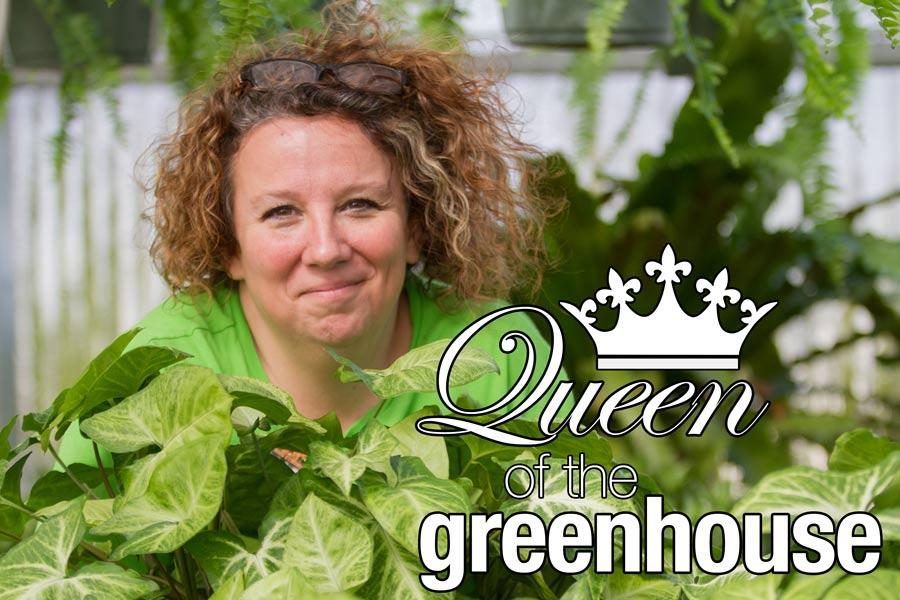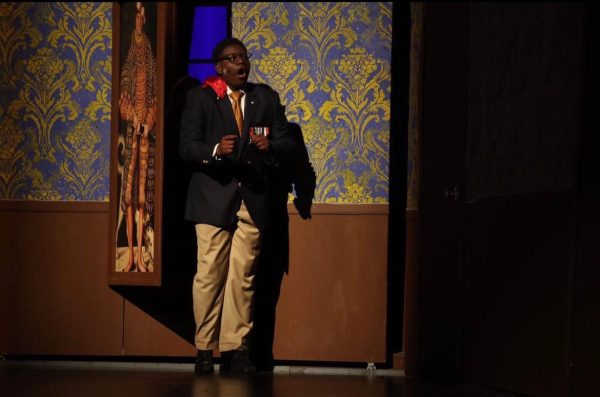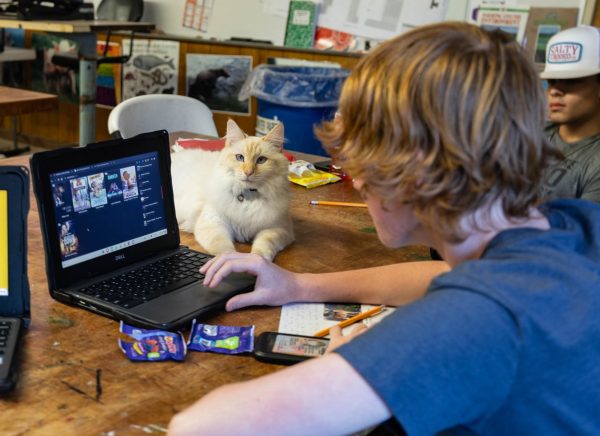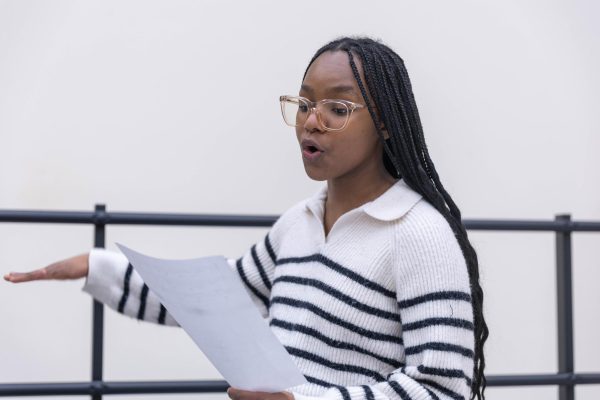Queen of the greenhouse
Horticulture teacher finds joy in spreading seeds of love for agriculture to her students
March 9, 2016
“Class how do you think our crawfish are doing?” she asks. “Are we going on a field trip Mrs. Frizzle?” a student inquires. “Why yes class we are,” Mrs. Frizzle replies. “To the bus.”
The students file onto the yellow bus before being shrunk down into the size of crawfish to go on a field trip to learn about how these creepy animals live. They all scream as the bus shrinks and Mrs. Frizzle drives the bus into a swamp.
While this might not be a real Magic School Bus, this is Mrs. Spaulding’s version. “Class how do you think our crawfish are doing?” the teacher asks. “Are we going to check them Mrs. Spaulding?” a student replies. “Why yes class we are,” Mrs. Spaulding says. “To the greenhouse.”
The students file into the the greenhouse to inspect how their crawfish are looking. They see if they are healthy and making progress all while learning the importance of caring for livestock. Each one leaves the greenhouse with bright eyes and talkative mouths about how cool it is to watch their crawfish mature.
The greenhouse warmth of Texas High Horticulture teacher Kim Spaulding’s lessons are what have inspired kids for 19 years. A graduate of Pleasant Grove, Texarkana College and Texas A&M University-Texarkana, Spaulding dabbled in the world of agriculture before setting her heart on education.
“When I went off to college, I was misdirected, and I took classes in wildlife management which were actually about managing the forest around the animals. I was like dang, I’m taking tree classes,” Spaulding said. “I wanted to take animal classes. I’m more interested in wildlife biology.”
Spaulding struggled to find her purpose in life throughout her college experience, but one thing continued to call her back – education.
“Every time [I changed my major], education kept calling me back. I couldn’t get away from it. It was in my blood. I had to do it, and I love it,” Spaulding said. “With my job now, I have my two main loves- animals and kids all in the same place.”
When Spaulding was just making her way out of college, she stumbled upon two young, lost and injured squirrels. She decided to rehabilitate them despite having vets tell her it would be impossible.
“I found out later that everything I did to raise them was wrong, but I did raise them both successfully and eventually [reintroduced] them into the wild,” Spaulding said. “That got me really interested in the wildlife. I used to joke growing up that I’m going to be Jeff Corwin.”
As Spaulding grew into her teaching career, she experienced the spontaneous life of running the Horticulture department whether it’s a plant sale or pick-up.
“We try to run this department like a business even though I might have curriculum planned,” Spaulding said. “I may be teaching about skull structure and someone comes to the door and they want to buy ferns, so I’m sending two kids out to the greenhouse when we have customers to deal with.”
Many students deem Spaulding’s classes as the “stuck-in” classes, but she is making it her mission to make them glad to be there and encourages them to make connections and be involved.
“[Students] kind of realize that they may not be in the same class together, but sometimes when they are up here for plant sales together, they realize they have something in common with a shared experience,” Spaulding said. “At this campus, the students still have a shared bond that they can experience together that builds a closeness.”
A tighter bond with her students has allowed Spaulding to bring forth the forgotten knowledge of agriculture and its unforgotten role in society.
“Agriculture is forever, and I try to expose them to things that are real world,” Spaulding said. “There are a lot of social impacts that go on behind the scenes that a lot of people don’t know about or just don’t care about because we are 100 years removed from the farm in our society.”
Spaulding has also brought her students closer to success in the agriculture field by instituting a veterinarian technician certificate next year. She also explains that what her students learn in class will help them secure jobs in the future.
“A lot of these kids can graduate and get jobs doing what they learn out here, like landscaping,” Spaulding said. “With the vet tech certificate, maybe they don’t want to be veterinarians, but it’s a good stepping stone or a job for them to have in college.”
As Spaulding looks back on why she fell in love with teaching the ways of the Earth, she credits how her family is centered on farmers and subsistence farming.
“Even though my grandfathers worked, they had to farm at home to provide food. Farming is important for my roots because that is how you fed everybody,” Spaulding said. “There was a time when if you wanted to eat, you better get out there and grow. That’s something I want the world to remember because people are forgetting that.”
Spaulding has devised a system to include people in the community with her horticulture department by providing different outreach programs. Her students sell flowers, clean flower gardens, make Homecoming mums and have even been approached by the Chamber of Commerce for their ferns. However, she says that all of this could not be done without the kids that make everyday eventful and linked to the Earth.
“My days are never boring. I’m never going to tell anyone my job is boring,” Spaulding said. “Everything you do daily, you can trace back to agriculture. Whether you eat it, wear it, live in it and even to an extent drive it. Everything goes directly back to agriculture 100 percent. That’s what I want to inspire in [my students.]”






















Abbi James • Mar 14, 2016 at 5:59 pm
Awesome teacher!
Wish every kid could experience Mrs. Spaulding’s class!